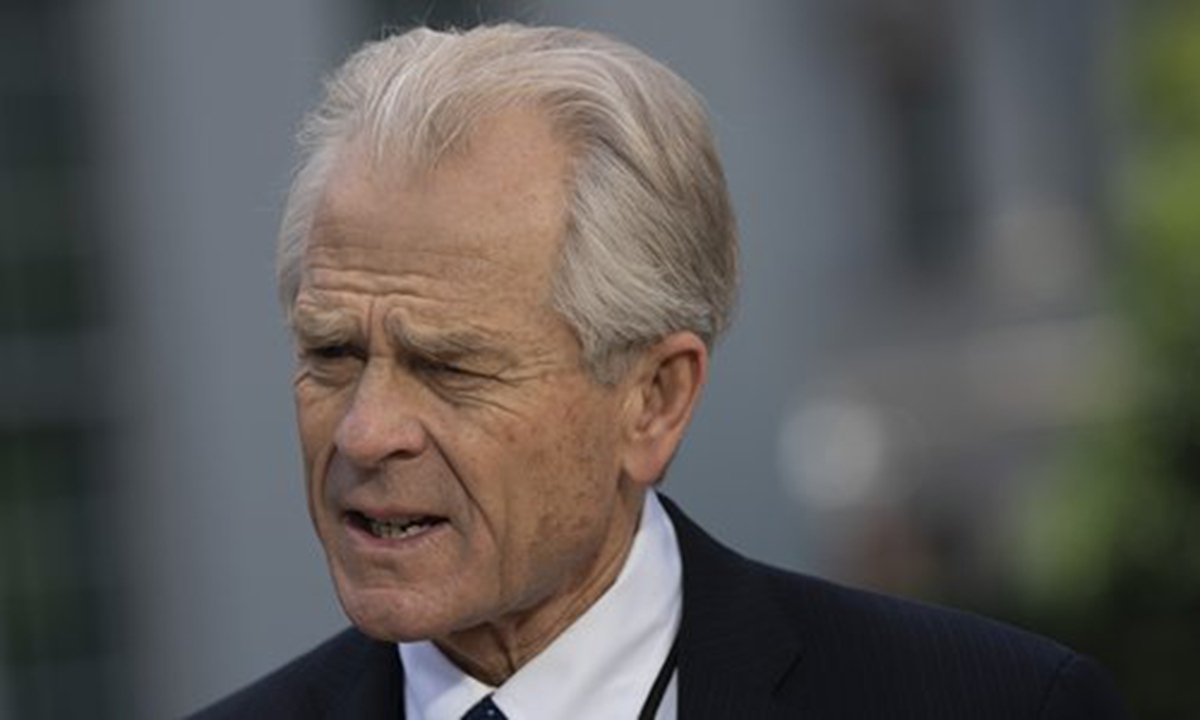US hits new low with political strike against Chinese businesses
Source: Global Times Published: 2020/7/13 21:14:43

Peter Navarro Photo: IC
White House trade advisor Peter Navarro briefed the media on Sunday, asserting that US President Donald Trump will take "strong actions" against TikTok and other Chinese-owned social media apps.Navarro's remarks, which came just days after US Secretary of State Mike Pompeo said that the US government is "looking at" banning TikTok, underscore the wanton discrimination Chinese companies face in the US market, amid rising US-China rivalry.
Navarro slung mud at Chinese social media apps, accusing them of engaging in "information warfare" against the US - which is another type of political stigmatization of Chinese businesses.
The US government has constantly escalated its crackdown on Chinese technology companies, in its bid to thwart their competitiveness. But all businesses in the world deserve fair treatment instead of political crackdowns. Politicizing Chinese manufacturing and discriminating against Chinese technology will only harm the world's supply chains and social progress.
Increasingly, US politicians are moving down the wrong path, using all types of rhetoric and measures to get their companies to move their supply chains out of China, or coerce other countries not to use advanced technology made by Chinese companies like Huawei.
Last month, some US senators introduced a bill aimed at encouraging pharmaceutical and medical device and supply manufacturers to move out of China and to relocate to the US.
On June 30, the US Federal Communications Commission designated Huawei and ZTE as US national security threats, and prohibits US telecom operators from using government subsidy programs to buy, maintain or support any equipment or services offered by the two Chinese companies.
And some American political bodies have made no secret of their prejudice against Chinese businesses. On Sunday, the US embassy in China hit a new low attacking Northwest China's Xinjiang Uyghur Autonomous Region, asking businesses to "snub" local supply chains to avoid profiting from it. The US embassy's Twitter account even used a doctored photo of a clothes tag that said "made by slave labor in China."
Such a trumped-up lie, a continuation of the US' attack of China's Xinjiang policy, makes the anti-China account look like a hooligan dedicated to smearing China, with no regard for truth or facts. Yet it is still appalling for the US embassy in China to resort to using a fake photograph to connect "made in China" with the political discourse of "human rights violations."
What's worse, the tweet also represents a dangerous development: Washington's political circle has become increasingly "outspoken" in showing hostility toward Chinese businesses and investment.
The doctored photo has angered ordinary Chinese, and the US embassy's account has become the target of many Chinese netizens. We hope the US government will just calm down, relax and refrain from spewing bigotry everywhere in the world.
Newspaper headline: New US low with strike against Chinese businesses
Posted in: GT VOICE